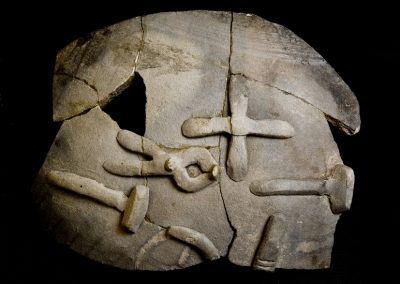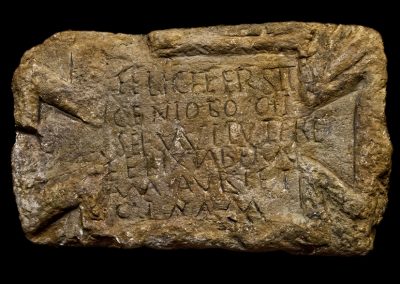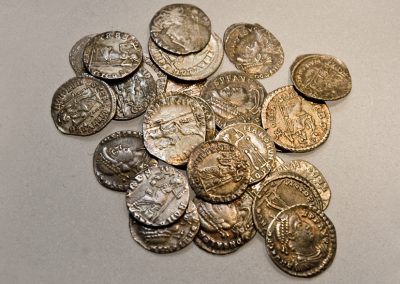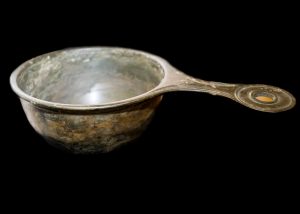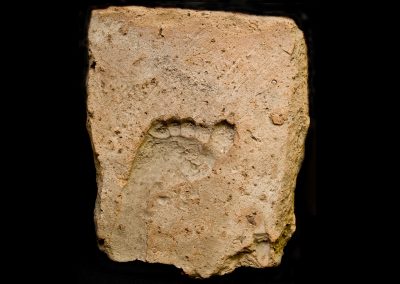Stone Plaque for a Goldsmith’s Shop
Malton Museum, North Yorkshire
It’s rare to find evidence of gold-working in Roman Britain, but this stone plaque records a goldsmith’s workshop in the area. It was found in 1814 whilst foundations were being dug for New Malton Church. The inscription reads:
FELICITER SIT
GENIO LOCI
SERVVLE VTERE
FELIX TABERN
AM AVREFI
CINAM
This translates as: ‘Good luck to the Genius of the Place. Young slave, use to your good fortune this goldsmith’s shop’.
In Roman belief, the Genius was a protective spirit, often shown holding certain attributes, for example a cornucopia (horn of plenty), patera (a shallow bowl for libations – drink offerings) or snake. Was this plaque and dedication thought to protect the goldsmith shop or workshop?
Watch the Art Video to Create a Genius!
Design your own Genius for a local shop of your choice. You could present your Genius design to the shopkeeper.
Watch The Video With Subtitles
Talking Points
We’ll probably never know exactly what was meant by the words, but what do you think of the inscription on the plaque?
Have you ever wished anyone good luck? Can you think of different ways of saying ‘good luck’ to someone? (Try saying it in different tones.)
What symbols (or attributes) do you think the Genius for the goldsmith’s might have had?
Why might a goldsmith have wanted to protect his shop?
How would you feel if you found this plaque? (Confused? Excited? Surprised?)
Compare the lettering on the plaque with the font Times New Roman. Are there any similarities?
‘Shop’ can also refer to a workshop. What sort of things do you think a Goldsmith might have made?

Vocabulary:
Cornucopia: or ‘horn of plenty’, a traditional image of a goat horn overflowing with flowers, fruit and corn to symbolise a good harvest or a plentiful supply of good things.
Patera: a small Roman pan shaped bowl with handle.
Libation: a liquid offering made to a deity.
In the Classroom
Hotseat
Interview the workman who found the plaque. What did he think it was and how did he feel?
This activity doesn’t need to take very long. If any of the other pupils disagree with the portrayal, they could try portraying the character differently.
Hands on History
Malton Museum runs ‘Roman Legacy’ workshops in schools across the region and you can also borrow an object loan box to explore the Romans in Ryedale.
Museum Location
Find more objects from Roman Britain


